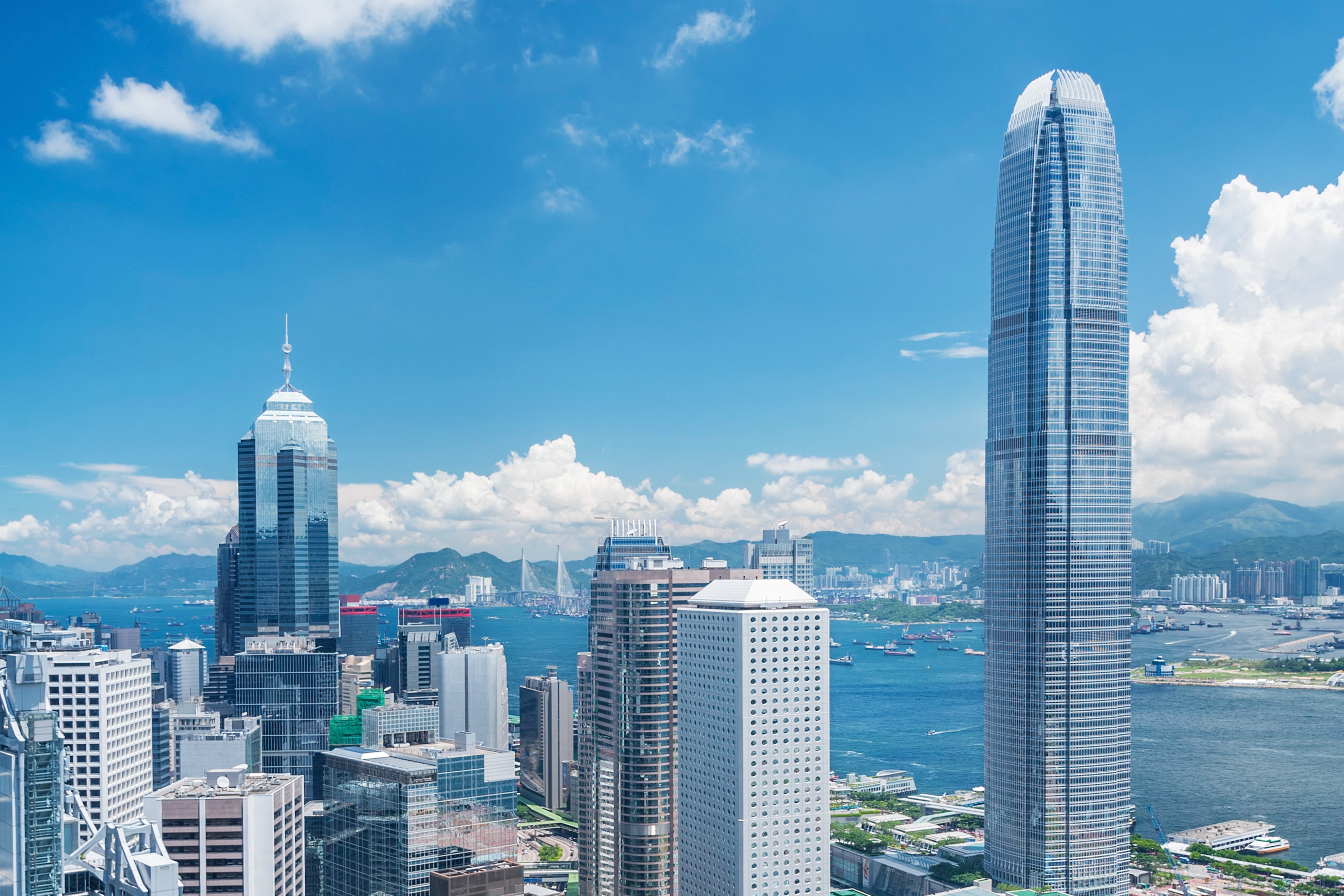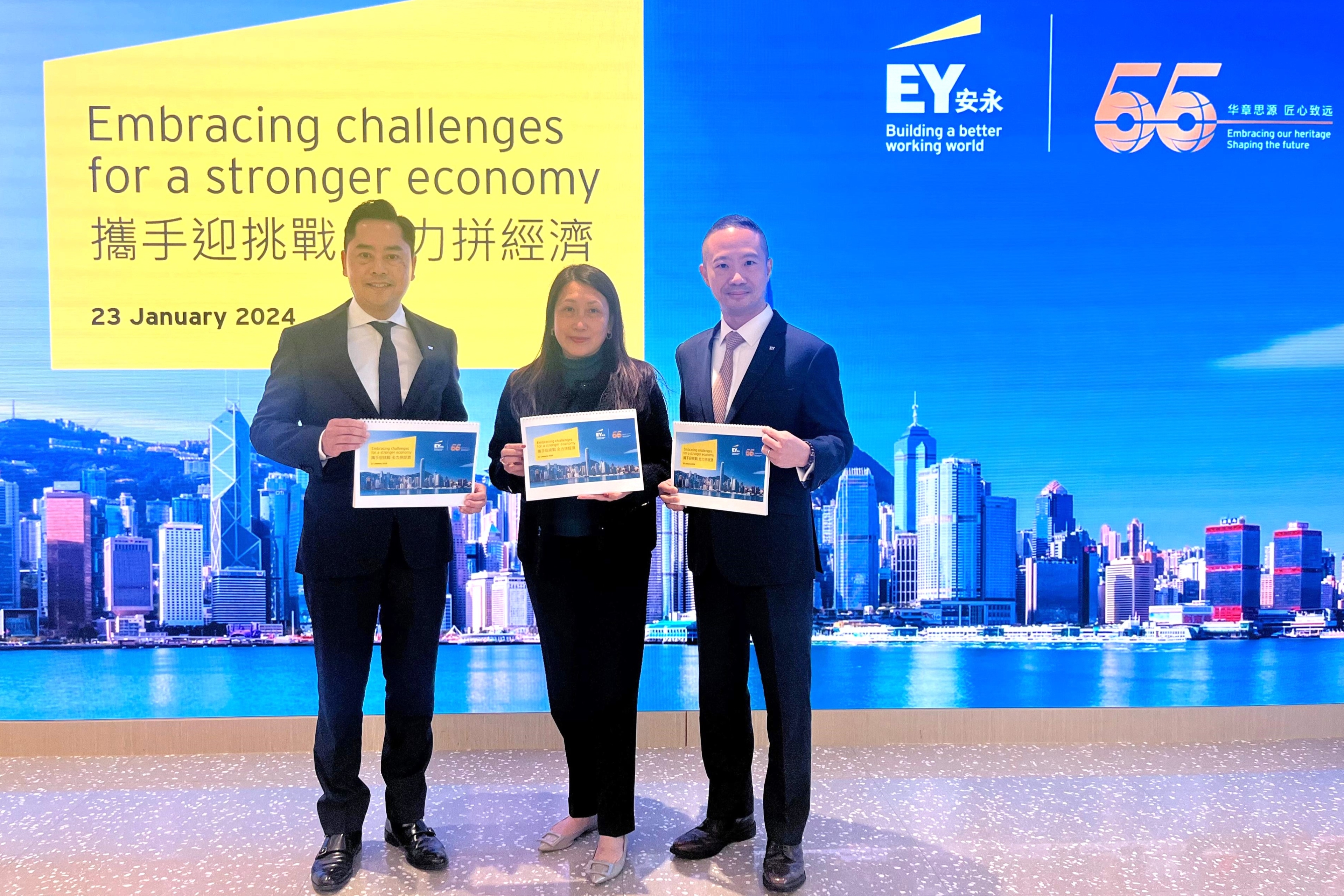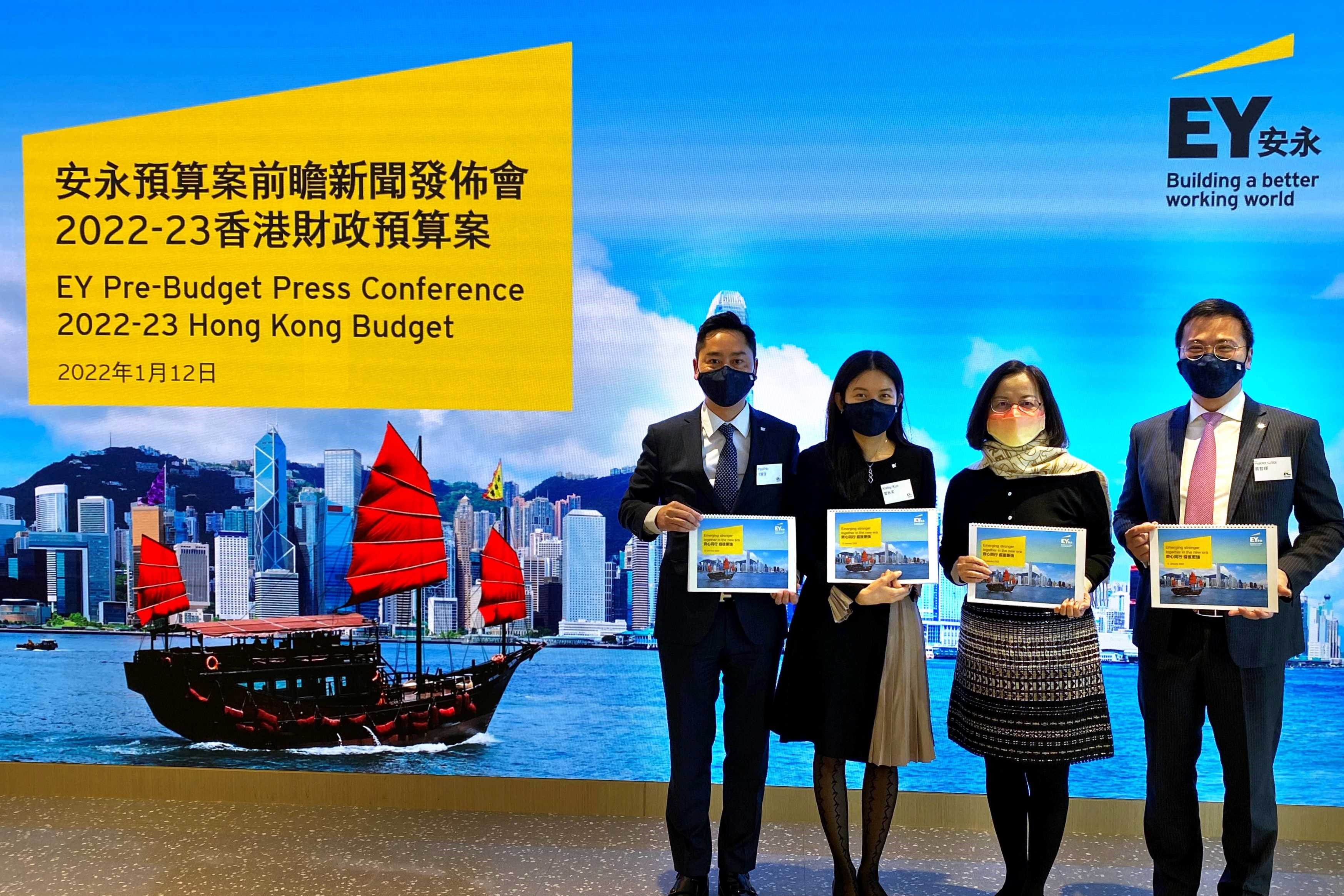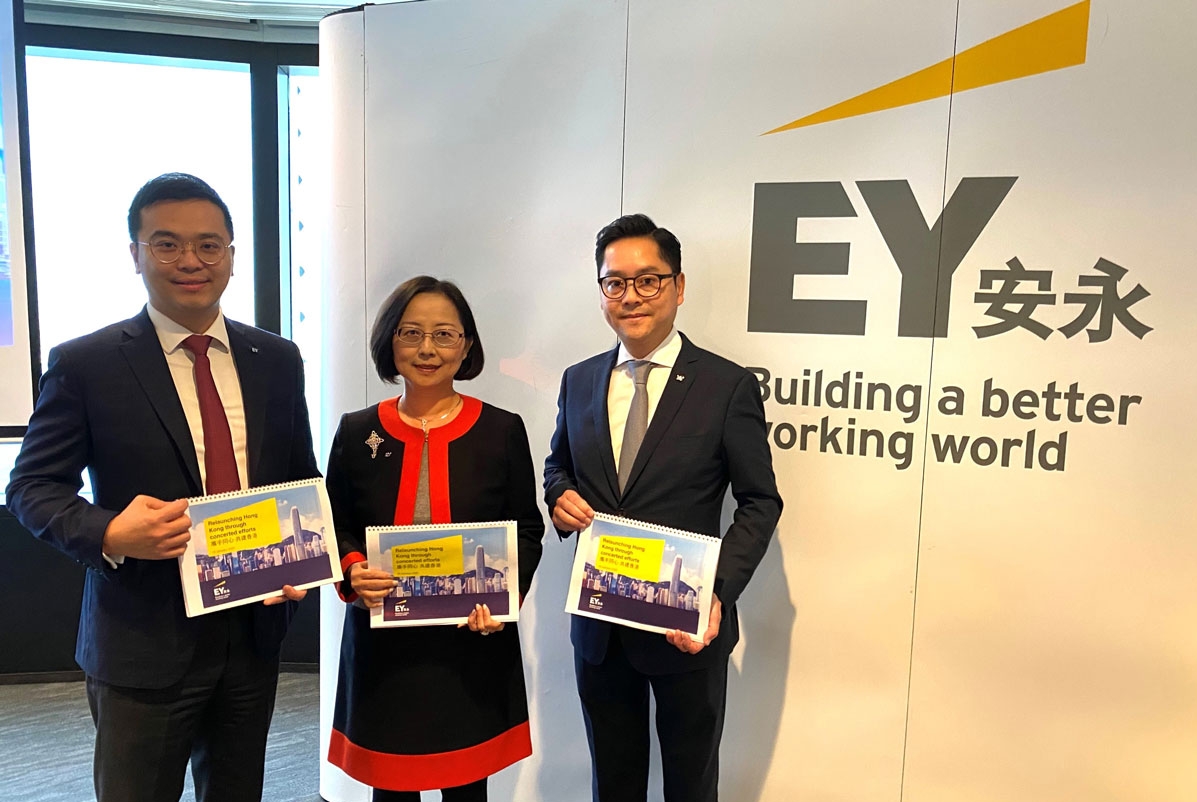EY refers to the global organization, and may refer to one or more, of the member firms of Ernst & Young Global Limited, each of which is a separate legal entity. Ernst & Young Global Limited, a UK company limited by guarantee, does not provide services to clients.
EY recommends the Government to adopt targeted supportive measures and focus on stimulating Hong Kong’s economic development in the mid- to long-term
Ernst & Young Tax Services Limited (EY) estimates that the HKSAR Government (the Government) will record a fiscal deficit in the financial year 2022-23 of HK$135 billion, which will be significantly higher than the amount of HK$56.3 billion originally forecasted in the Government’s budget announced in February 2022.
As a result of the estimated deficit for the fiscal year 2022-23, Hong Kong’s fiscal reserves will be reduced to HK$822.1 billion as at 31 March 2023, equivalent to 12 months of estimated government expenditure.
Paul Ho, EY1 Financial Services Tax Leader for Hong Kong says: “The pandemic continued to impact the economic activities of the mainland and Hong Kong most of the time last year. Although the economy had shown a slight improvement towards the end of 2022, Hong Kong experienced negative GDP growth of 3.5% in 20222. The stagnant economy was mainly driven by the sharp interest rate hikes, the tightening of monetary policies of the major advanced economies and the ongoing geopolitical tensions globally, all of which have weakened consumers’ demands and spendings.
“Land premium is expected to be much lower than the original estimate by HK$48.6 billion. Tax revenue is also expected to reduce due to the weak economy, resulting in lower earnings in 2022-23.”
Providing targeted support to individuals and enterprises
We are pleased to see the increased people movement and economic activity following the relaxation of COVID control policies in recent months. With the full reopening of the border between mainland China and Hong Kong this week, the growth of the Hong Kong economy will gather pace.
While we are on the road to recovery, the Government should remain cautious about the uncertainties and fluctuations of the external environment in proposing supportive measures in the Budget for 2023-24.
Ho says: “While the Government should implement short-term measures to relieve the hardship of individuals and enterprises amid the challenging economic environment, such as tax rebates, electricity subsidies, extra half month of social security payments to qualified individuals and waiver of rates and government fees, a targeted approach is recommended to ensure the effective use of the Government resources to those in need and at the same time maintain the fiscal reserves at a reasonable level.”
Supporting businesses to transform and grow
In addition to providing short-term relief measures to ease the hardship of individuals and enterprises, the Government should continue to invest in the long-term development and transformation of the Hong Kong economy.
Among the others, the 14th Five-Year Plan promulgated by the Central Government in 2021 has endeavored to develop our country into an innovative nation with strong science and technology. As such, the Government rolled out the Northern Metropolis Development Strategy in 2021 and committed to developing the San Tin Technopole into an integrated community to attract talent to settle and work there.
The Government commenced a study in October 2021 to formulate a detailed development plan for the San Tin Technopole. The study is expected to be completed in the second half of this year. The Government should consider introducing various tax measures to help attract individuals and enterprises to develop their career and business there respectively. Our recommended measures include the launch of a qualified refundable tax credit scheme for enterprises, as well as the introduction of concessionary tax rates to encourage enterprises and individuals to work and conduct research and development (R&D) activities in the San Tin Technopole.
In addition to developing the emerging industries, the Government is recommended to continue to strengthen the competitive advantages of Hong Kong’s traditional industries. For instance, the launch of the Cross-boundary Wealth Management Connect in September 2021 has significantly expanded the market for wealth management products of Hong Kong’s financial institutions to the Greater Bay Area (GBA), which is the most prosperous region in the mainland in terms of economic development with the largest wealth accumulation. To this end, we would suggest expanding the existing tax exemptions for funds to cover bond funds and providing tax incentives to fund managers to reinforce Hong Kong as a wealth management center.
Building a green and sustainable city
Ricky Tam, EY1 Tax Services Partner says: “The International Sustainability Standards Board (ISSB), which was established by the IFRS Foundation Trustees in November 2021, targets to issue two sustainability disclosure standards in 2023 after the exposure drafts which were issued in 2022. Additionally, the directional view from the Hong Kong Stock Exchange is that the recommendations of the Taskforce on Climate-related Financial Disclosure (TCFD) will become mandatory by 2025. As a result, more enterprises, and listed companies in particular, will be required to make more financial disclosures relating to environmental, social and governance issues in their financial reports.
“To encourage enterprises to get ready for the above in the foreseeable future, we would recommend granting double tax deductions to enterprises which have engaged qualified consultants to provide carbon services, such as carbon accounting, sustainability advisory and assurance, and greenhouse gas verification.
“To further promote Hong Kong as a green finance hub, we would also propose offering tax incentives to qualifying green bonds and expand the list of qualifying debt instruments to include all qualifying green bonds to attract more investors to invest in those qualifying green bonds traded in Hong Kong.”
Fostering a future-ready workforce and strengthening the community
Robin Choi, EY1 People Advisory Services Partner says: “Talent shortage is an issue encountered by many enterprises. To help our society retain talent in Hong Kong, we would propose granting tax deductions to graduates of universities in Hong Kong on their tuition fees. Qualifying graduates (including both local and overseas students) who have worked in Hong Kong for two years after graduation will be eligible to claim tax deductions in the subsequent three years of assessment.
“Unleashing potential labor supply in an ageing population is another possible way to replenish the workforce. We propose granting higher basic allowance to individuals aged 60 or above for salaries tax and personal assessment purposes as an incentive for silver hair workers to remain in the workforce, earn a better living and continue their contribution to our society. Enterprises may also be given non-taxable cash subsidies to motivate them to employ silver hair workers.
“In addition to university graduates and silver hair workers, the Government may provide incentives to encourage stay-at-home parents to return to the workforce by granting caregiver subsidies and provision of more childcare services.
“We would also propose to remove the existing deduction cap of charitable donation up to 35% of the assessable income or profits of individual and business donors, and to expand approved charitable donations to include in-kind donations of land or buildings and artefacts to qualifying institutions, subject to a cap. We believe that this would encourage charitable donations by individuals, enterprises and family offices. Artefact donations would also help to facilitate Hong Kong in developing itself as a hub for arts and cultural exchanges between China and the rest of the world.”
Assessing the effectiveness of tax incentives
Last but not least, the Government is recommended to establish a mechanism to continuously evaluate the effectiveness of the tax incentives after their implementation. If necessary, the tax incentives should be enhanced to ensure that they achieve the intended objectives.
A full list of EY 2023-24 budget proposals is included in the appendix. We believe that these proposed fiscal measures will help relieve the short-term needs of individuals and enterprises, as well as provide incentives to the individuals and enterprises in Hong Kong to equip and transform themselves for building a more sustainable city.
1C&SD : National Accounts (censtatd.gov.hk)
2Ernst & Young Tax Services Limited
-Ends-
Appendix - Full list of proposed budget measures
Notes to Editors
EY | Building a better working world
EY exists to build a better working world, helping to create long-term value for clients, people and society and build trust in the capital markets.
Enabled by data and technology, diverse EY teams in over 150 countries provide trust through assurance and help clients grow, transform and operate.
Working across assurance, consulting, law, strategy, tax and transactions, EY teams ask better questions to find new answers for the complex issues facing our world today.
EY refers to the global organization, and may refer to one or more, of the member firms of Ernst & Young Global Limited, each of which is a separate legal entity. Ernst & Young Global Limited, a UK company limited by guarantee, does not provide services to clients, nor does it own or control any member firm or act as the headquarters of any member firm. Information about how EY collects and uses personal data and a description of the rights individuals have under data protection legislation are available via ey.com/privacy. EY member firms do not practice law where prohibited by local laws. For more information about our organization, please visit ey.com.
This news release is issued by the EY China practice, a part of the EY global network. The Chinese member organizations of EY reserve the final right to interpret this press release. Any comments or statements in this press release should not be construed as professional advice or advice on any matter. Without the written consent or authorization of EY, the name, logo and trademark of EY shall not be used or quoted.
Related news
HONG KONG, 14 MAY 2024 – EY Greater China Region today released its Listed Banks in China – 2023 review and outlook report (Executive summary). The report delves into the latest changes in the operating performance, asset quality, business structure and operating model of 58 listed banks in China in 2023. It also sheds light on the transformation efforts made by these banks through a review of their development over the past five years. During this period, uncertainty has become the new normal, with profound changes in the macro environment. Despite facing a complex and turbulent business environment, listed banks have embraced and adapted to changes, sought progress while maintaining stability on the path to achieving high-quality development.
HONG KONG, 12 MARCH 2024 — Hong Kong University of Science and Technology (HKUST) Roger King Center for Asian Family Business and Family Office ("the Center") and EY Family Enterprise team (“EY”) today announced the publication of the Landscape of Family Offices in Greater China Report 2024 (the "Report"). Combining academic research and industry expertise, the report provides a comprehensive and insightful analysis of the family office landscape in Greater China. Findings in the report suggest that Chinese mainland families are the primary driving force behind the development of family offices in Hong Kong and that attracting Chinese mainland families is to be focalized.
HONG KONG, 28 FEBRUARY 2024 — The Hong Kong SAR Government (the Government) announced the Hong Kong Budget 2024-25 (the budget) today, in which a revised deficit of HK$101.6 billion will be recorded for the financial year 2023-24, which is almost double of their original forecast of HK$54.4 billion. Amid uncertainties in the global economic outlook, the Financial Secretary (FS) adopted a balanced approach in the budget to relieve people's hardship while simultaneously revitalizing the economy.
HONG KONG, 23 JANURARY 2024 — Ernst & Young Tax Services Limited (EY) estimates that the Hong Kong SAR Government (the Government) will record a fiscal deficit in the financial year 2023-24 of HK$148.0 billion, which would exceed the HK$54.4 billion originally forecasted in the Government’s Budget announced in February 2023 by almost two times.
HONG KONG, 12 JANUARY 2022 — Ernst & Young Tax Services Limited (EY) estimates that the HKSAR Government (the Government) will record a fiscal deficit in the financial year 2021-22 of HK$18 billion, which will be considerably lower than that originally forecasted in the Government’s budget announced in February 2021.
EY comments on Hong Kong Budget 2021-22 - Hong Kong’s financial positioning and relief measures
HONG KONG, 24 FEBRUARY 2021 — Agnes Chan, EY Managing Partner, Hong Kong and Macau, says, “Based on the revised estimate announced in the Hong Kong Budget, the HKSAR Government (the Government) will record an unprecedented deficit of HK$258 billion for the financial year 2020-21, the highest deficit recorded to date.”
EY comments on Hong Kong Budget 2020-21
HONG KONG SAR, 28 FEBRUARY 2020 — Based on the revised estimate announced in today’s budget, the HKSAR Government will record the first budget deficit in 15 years, says Agnes Chan, EY Managing Partner, Hong Kong and Macau.
EY estimates a fiscal deficit of HK$70 billion for 2019-20
HONG KONG SAR, 16 JANUARY 2020 - EY estimates that the HKSAR Government (the Government) will record a deficit of HK$70 billion for the financial year 2019-20, the first budget deficit in 15 years.











